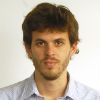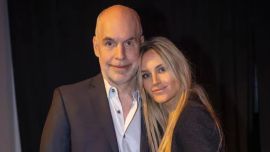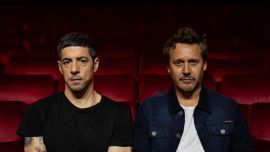On his office wall at the Argentine Embassy in Vienna, Rafael Grossi has a big world map hanging to count his votes. The Board of Governors at the International Atomic Energy Agency (IAEA), the United Nations watchdog for nuclear developments and non-proliferation, comprises 35 member countries. Grossi needs two-thirds of those votes to become the IAEA’s next director general.
Grossi believes he has both the quantity and quality of votes. The United States considers him the “perfect candidate” with French backing also likely. Russia and China are expected to make up their minds at the last minute. Both India and Pakistan are reportedly for him, as is Canada, several European nations, a couple of Middle Eastern countries and all the Latin Americans with even two Africans.
A former IAEA Assistant Director, Grossi is a top-level international nuclear diplomat whose work in the area dates back to the 1983-1989 Raúl Alfonsín presidency under the Foreign Ministry’s Nuclear Affairs Director Adolfo Saracho, who pioneered the policies of a democratic Argentina for the peaceful use of nuclear energy. Three decades later Grossi discusses his bid and areas of tension.
How many votes do you have for your IAEA candidacy?
I’m wary of numbers but I think I have great chances of heading the IAEA with support from North, South, East and West. In the previous election for Director General there was a strong polarisation between industrialised and developing countries which made the voting very sticky. Now we have the support of the entire Western Hemisphere, several European nations and important Asian countries, generating an interregional coalition. Although, of course, I’m not the only candidate and politics always plays a part.
What would you say makes you a better candidate than the rest?
The Argentine nuclear model is very attractive for industrialised and developing countries alike. We’re a middleweight with nuclear energy which also exports it, but not very much, and which does not have a dominant position on the nuclear market but understands it well. We have a long history of non-proliferation. Then there is obviously my own track record. An IAEA director general cannot be improvised. The members want somebody who knows what they are talking about at the technological level.
What kind of support do you have in Argentina? Have you spoken to the people of Alberto Fernández?
I have plenty of contact with everybody. My candidacy was presented by President [Mauricio] Macri and Foreign Minister [Jorge] Faurie, for which I’m very grateful. They had meant to do it before but it did not work out. Nuclear policy is one of the few areas which enjoys enormous political consensus in Argentina. On no other issue of global strategic impact does Argentina speak out with one voice as on this.
So a change of government would have no impact on external nuclear policy?
No, there’s a State policy. I express the work of a generation and a Foreign Ministry team with extremely valuable ambassadors. In general, we’ve always been accompanied over nuclear issues. We’ve had some very ‘nuke’ foreign ministers like Jorge Taiana, who had a great interest in the subject, and now Faurie campaigning for my candidacy.
What kind of global influence does the IAEA Director have?
He fixes the priorities and heads the inspectors. The IAEA has two faces: one promotional, establishing safety standards and technical cooperation, and the other as watchdog. The IAEA inspects. And then there are the special cases: Iran, North Korea and Syria at one time. The Director General sets the tone for the inspections and the reports. It’s a huge responsibility.
The pressures are great. Five Security Council members, each with an interest.
I saw that as assistant director, they were on top of us all the time. In the case of Iran, for example, one group of countries on the Council wants very stern IAEA criteria while the other does not want the IAEA to exaggerate. Of course there are pressures. In the past the consensus between the main players was more consolidated; today it’s different. Although it also must be said that, from their diverse standpoints, everybody supports the IAEA.
If you were elected IAEA director, what would you do with the Iran nuclear agreement?
Without doubt the agreement is under heavy pressure. At the same time there are initiatives underway to seek stability, either with this agreement or amending it. A backdrop requiring a flexible vision because the scenario is not static nor absorbed by the agreement. Having said this, the only thing the director general can do is strictly verify certain aspects of the agreement as it stands today. It’s not their job to pronounce themselves either for or against this or a new agreement.
And North Korea?
That’s a different case because there is already proliferation. The IAEA lost its physical presence in North Korea in 2009 when the last inspectors were expelled. There is no custody of nuclear material, just intelligence and satellite information. The agency must remain in a state of alert because if a political agreement to inspect is reached, there should be inspectors in Pyongyang within 10 hours.
In this case the key to dialogue is China?
I agree, China has the capacity for top-level dialogue with the North Korean government.
What can the IAEA do in the face of such an unpredictable nuclear player as Donald Trump?
It’s not up to me to make value judgements on the policies of the leaders of member countries. What I can say is that the United States ha s b e en a bulwark of support for t h e I A E A ever since its origins in 1957.
























Comments